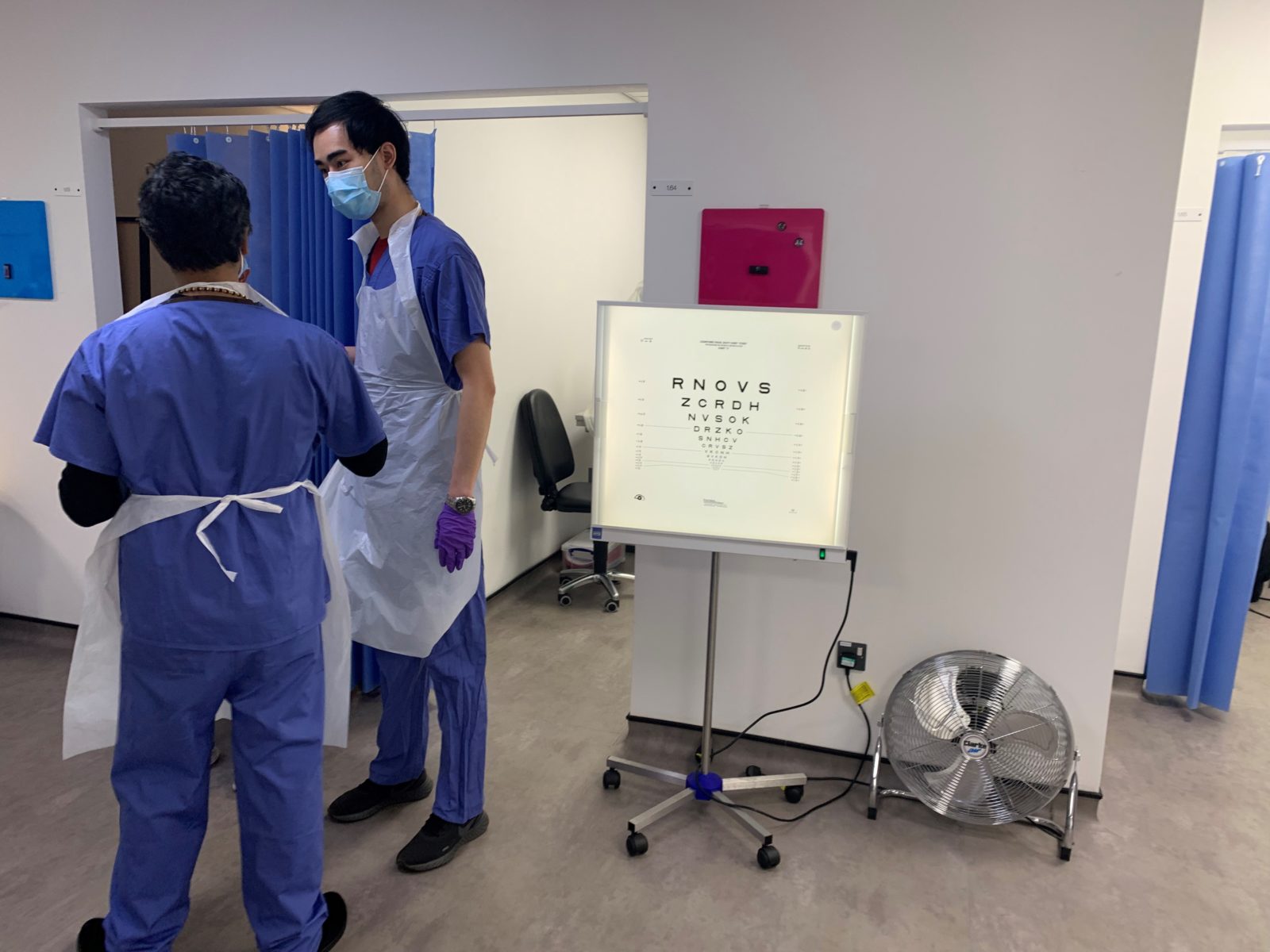Health Minister, Eluned Morgan has welcomed progress on new eye care facilities which will increase the number of patients receiving eye care treatment and cut waiting times.
Backed by investment from the NHS recovery funding’ health boards in Wales are undertaking innovative work to improve access eye care. Despite continuing pressures on the NHS Between November 2021 and December 2021 the number of highest risk patients waiting for an ophthalmology outpatient appointment fell by just over 2,000.
To accommodate the growing number of patients requiring eye care, Cardiff and Vale University Health Board worked in partnership with Cardiff University to re-think how eye care was delivered to the population of Cardiff and the Vale. In just 100 days, the NHS Wales University Eye Care Centre was established in Cardiff to improve access to eye care and support the recovery of services to pre-pandemic levels.
With demand for eye care services growing, the NHS Wales University Eye Care Centre in Cardiff is one example of how NHS Wales is reducing the wait for people with urgent or complex eye cases to be seen in hospital, by carrying out eye care treatments within a primary care setting.
The NHS Wales University Eye Care Centre provides additional training to upskill Optometrists to allow them to see a wider variety of people who traditionally would have needed to been seen in hospital. The Centre, in collaboration with the School of Optometry and Vision Sciences at Cardiff University, is currently providing training for nine Optometrists to attain the higher qualifications in the delivery of Glaucoma. Attending the clinic one day per week the Optometrists undertaking the qualification see over 35 patients per week in a clinical setting as they work towards their award. Following the success of the training, a further twelve Optometrists are due to commence training to attain the Higher Certificate in Medical Retina in March, and will be seeing over 50 patients per week.
This sustainable eye care service has allowed more patients to be treated efficiently, receive care locally to them and within a timeframe which will not risk further sight loss. From September a further 2,700 patients will be seen in the NHS Wales University Eye Care Centre every year.
In addition, two new surgical theatres dedicated to cataract treatment will be completed this month and operational in March 2022. Funded by £1 million from Welsh Government, the new theatres in Cardiff will increase cataract activity to 427 treatments per month from 60 per month on average. The increased capacity will result in eye care waiting lists falling by 227 people a month.
Singleton Hospital in Swansea has also announced a new operating theatre dedicated to ophthalmology procedures will open in the summer. The new modular theatre will enable the health board to carry out around 200 additional operations a month.
Community clinics to reduce the need for some people to attend hospital and receive treatment closer to home have been set up in Cwm Taf Morgannwg, and Hywel Dda Health Boards. Betsi Cadwaladr University Health Board has enabled more patients to be seen closer to home by supporting additional services within the community using the skills and expertise of staff within optometry practices.
The Minister for Health and Social Services, Eluned Morgan said:
“Ophthalmology services has seen a significant increase in demand over recent years and we don’t want people to risk their sight by having to wait a long time for treatment. Improving access to treatment is vital if we want to cut waiting times and ensure eye care services are fit for the future.
“It is fantastic to see the innovative work health boards are doing and the progress being made to ensure those at the highest risk of eye disease get the treatment and regular ongoing care they need. We have long set out our ambition to transform the way we deliver services to meet the demand of the future. Community clinics, the additional theatres and Cardiff & Vales’ NHS Wales University Eye Care Centre are an excellent example of this vision.”
The Head of School, School of Optometry and Vision Sciences, Cardiff University, Professor John Wild said:
“This is an exciting example of how Wales is rising to the challenges of increased demand for eye care. The School of Optometry and Vision Sciences, Cardiff University is helping to clear the current waiting list and at the same time is pleased to be at the forefront of enhancing optometric education by affording unique learning opportunities in these specialist clinics. The current and future optometric workforce will be able to manage patients with sight threatening eye disease in their practices across Wales. This innovation is providing a sustainable solution and not just short-term answer.”
Sharon Beatty, Optometric Advisor to Cardiff and Vale University Health Board said:
“This creative and new partnership between the Health Board and Cardiff University demonstrates how collaborative working can lead to improved patient eye care.”








Leave a Reply
View Comments